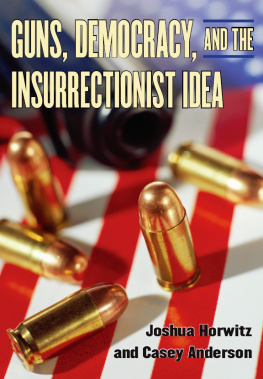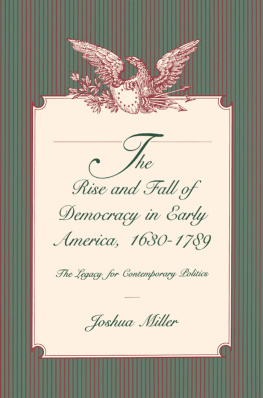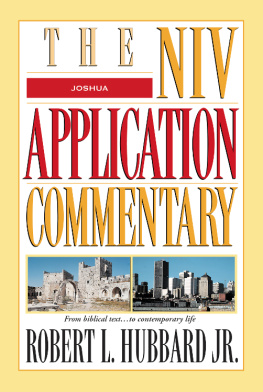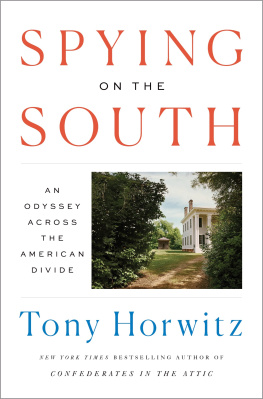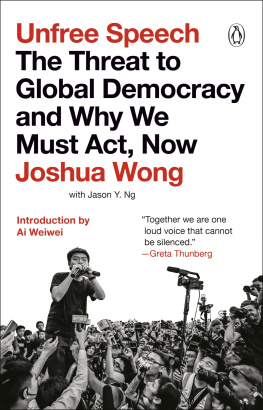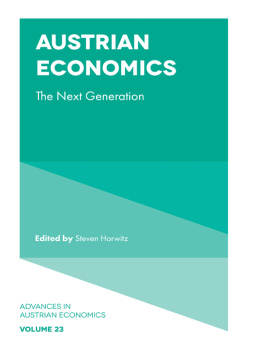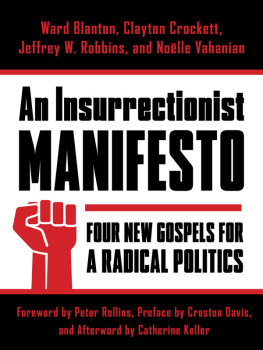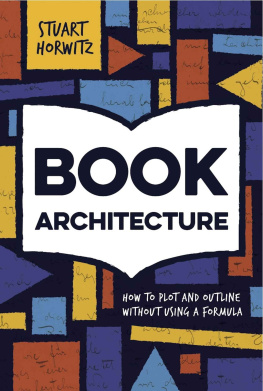Joshua Horwitz - Guns, Democracy, and the Insurrectionist Idea
Here you can read online Joshua Horwitz - Guns, Democracy, and the Insurrectionist Idea full text of the book (entire story) in english for free. Download pdf and epub, get meaning, cover and reviews about this ebook. year: 2018, publisher: University of Michigan Press, genre: Politics. Description of the work, (preface) as well as reviews are available. Best literature library LitArk.com created for fans of good reading and offers a wide selection of genres:
Romance novel
Science fiction
Adventure
Detective
Science
History
Home and family
Prose
Art
Politics
Computer
Non-fiction
Religion
Business
Children
Humor
Choose a favorite category and find really read worthwhile books. Enjoy immersion in the world of imagination, feel the emotions of the characters or learn something new for yourself, make an fascinating discovery.
- Book:Guns, Democracy, and the Insurrectionist Idea
- Author:
- Publisher:University of Michigan Press
- Genre:
- Year:2018
- Rating:5 / 5
- Favourites:Add to favourites
- Your mark:
- 100
- 1
- 2
- 3
- 4
- 5
Guns, Democracy, and the Insurrectionist Idea: summary, description and annotation
We offer to read an annotation, description, summary or preface (depends on what the author of the book "Guns, Democracy, and the Insurrectionist Idea" wrote himself). If you haven't found the necessary information about the book — write in the comments, we will try to find it.
Guns, Democracy, and the Insurrectionist Idea — read online for free the complete book (whole text) full work
Below is the text of the book, divided by pages. System saving the place of the last page read, allows you to conveniently read the book "Guns, Democracy, and the Insurrectionist Idea" online for free, without having to search again every time where you left off. Put a bookmark, and you can go to the page where you finished reading at any time.
Font size:
Interval:
Bookmark:
 Page i Page ii Page iii
Page i Page ii Page iii Joshua Horwitz and Casey Anderson
THE UNIVERSITY OF MICHIGAN PRESS
ANN ARBOR
Copyright by the University of Michigan 2009
All rights reserved
Published in the United States of America by
The University of Michigan Press
Manufactured in the United States of America Printed on acid-free paper
Printed on acid-free paper
2012 2011 2010 2009 4 3 2 1
No part of this publication may be reproduced, stored in a retrieval system, or transmitted in any form or by any means, electronic, mechanical, or otherwise, without the written permission of the publisher.
A CIP catalog record for this book is available from the British Library.
Library of Congress Cataloging-in-Publication Data
Horwitz, Joshua, 1963
Guns, democracy, and the insurrectionist idea / Joshua Horwitz
and Casey Anderson.
p. cm.
Includes bibliographical references and index.
ISBN-13: 978-0-472-11572-3 (cloth : alk. paper)
ISBN-10: 0-472-11572-3 (cloth : alk. paper)
ISBN-13: 978-0-472-03370-6 (pbk. : alk. paper)
ISBN-10: 0-472-03370-0 (pbk. : alk. paper)
1. Civil rightsUnited States. 2. Gun controlUnited States. 3. FirearmsLaw and legislationUnited States. I. Anderson, Casey, 1968 II. Title.
JC599.U5H626 2009
323.43dc22 2009014539
ISBN-13: 978-0-472-02199-4 (e-book)
Page vTo our fathers
Marshall S. Horwitz (19372005)
David L. Anderson
Page vi Page viiWe want to express our appreciation to Colleen Ramsey Nguyen (for her hard work and attention to detail in assisting with research and copy-editing); the board of directors, staff, and interns of the Coalition to Stop Gun Violence and the Educational Fund to Stop Gun Violence (for their patience and support with every aspect of our work); our friends and colleagues at the Johns Hopkins Bloomberg School of Public Health, including Steve Teret, Jon Vernick, Daniel Webster, Shannon Frattaroli, Sharon Wakefield, Lainie Rutkow, and especially Donna Hesson; our editors at the University of Michigan Press, including Melody Herr and James F. Reische; our family, friends, and colleagues who read drafts or excerpts at various stages, including Ladd Everitt, Sayre Weaver, Mike Beard, Saul Cornell, Carl Bogus, David Hemenway, Garen Wintemute, Jeri Bonavia, Gerald Linderman, Wayne Rohde, Sue LaLumia, Dennis Quinn, and Bruce Horwitz; and David Kairys (for leading us to the University of Michigan Press).
JMH and CBA
I extend a special thank you to my wife, Pam, for her loving support; to my daughter, Micayla, for always greeting me with great gusto and affection as I emerge from my basement writing den; and to my mother, Susan Horwitz, for her constant encouragement.
JMH
I am grateful to my parents, David and Linda Anderson, the best editors a boy could ever have. I also want to thank my wife, Mary, and my children, Kelly and Tyler, for their love and tolerance.
CBA
Page viii Page ix
Page x
The National Rifle Association (NRA) sells everything from its political agenda to its merchandise with a simple equation: more guns equals more freedom. The NRA steadfastly maintains that thirty thousand gun-related deaths and three hundred thousand assaults with firearms in the United States every year are a small price to pay to guarantee freedom. As former NRA president Charlton Heston put it, Freedom isn't free. When Heston told fellow NRA members that anyone who wanted to take his guns would have to pry them out of his cold dead hands, he was advancing a theory of the relationship between freedom and firearms that has become a powerful political and social force in America.
When gun enthusiasts talk about the importance of an expansive reading of the Second Amendment to the defense of freedom, they are referring to freedom in a general sense, but they also have something more specific in mindfreedom from government oppression. In their view, unfettered access to firearms is the key ingredient in protecting individual rights from overreaching by government. They argue that the best wayin fact, the only wayto keep centralized authority in check is to ensure that individual citizens retain the capability to confront the government with force of arms.
This idea, which we call Insurrectionism, is part of a broader ideological perspective that opposes a strong, activist government in nearly Page 2 all of its forms. For Insurrectionists, guns are both symbols and tools of freedom. The idea that individuals must be prepared for a violent confrontation with the state is only one tenet, albeit crucial, of a worldview that is hostile towardor at least highly suspicious ofpublic education, immigration, international institutions, and almost any type of social program, especially when run by the federal government. Antigovernment sentiment is, of course, not confined to gun rights enthusiasts, but the Insurrectionist idea adds an emotionally charged element to the standard conservative critique: big government is not just inefficient or even corrupt but is an alien force that threatens to annihilate us if we fail to exercise constant vigilance against its natural tendency toward tyranny.
On occasion, the Insurrectionist idea spurs a lost soul or desperate tax delinquent or publicity-seeking paramilitarist to violent action. Timothy McVeigh was the poster child for the deadly consequences of taking the Insurrectionist idea to heart, but smaller armed confrontations between citizen and government are sufficiently common that they usually warrant only a brief mention in the local newspaper unless they escalate into full-scale shootouts. Rather than attempting to resolve their grievances through the courts or the political process, self-declared patriots challenge government authority through force of arms, often with bloody results. It is not surprising that Insurrectionist rhetoric eventually leads some people to take violent action, but the blithe acceptance of these outbursts of violence as a natural and perhaps inevitable reaction to government overreaching is remarkable.
After a disgruntled business owner who feltapparently with some justificationthat he was treated unfairly by municipal officials in the town of Kirkwood, Missouri, went on a shooting spree at a town council meeting in the spring of 2008 and killed five people, members of the public responded with outrage at the violence but not at the motives: some observers seem to see armed confrontation with the government as a prerogative of citizenship. Speaking at a community meeting a day after the massacre, one man said that the shooter was a soldier who paid the price for liberty.
And why shouldn't shooting public officials be a legitimate response by citizens who are aggrieved by the government? After all, at the time Page 3 of the Missouri shooting, briefs were being filed and arguments being prepared for the Supreme Court arguing explicitly that our constitution guarantees every American the right to prepare for armed confrontation with the government. In Heller v. D.C., a challenge to the District of Columbia's gun laws, the NRA, appearing as an amicus curiae, contended that one purpose of the Second Amendment is to protect an individual right to arm against the depredations of a tyrannical government. The vice president of the United States and 305 members of Congress asked the Court to support that view. And in fact, in a landmark decision striking down parts of the District's gun laws, the Court found that the Second Amendment includes an individual right to insurrection. Justice Antonin Scalia wrote that citizens acting on their own are entitled to arm themselves and connect with others in a citizens' militia to counter government tyranny.
Font size:
Interval:
Bookmark:
Similar books «Guns, Democracy, and the Insurrectionist Idea»
Look at similar books to Guns, Democracy, and the Insurrectionist Idea. We have selected literature similar in name and meaning in the hope of providing readers with more options to find new, interesting, not yet read works.
Discussion, reviews of the book Guns, Democracy, and the Insurrectionist Idea and just readers' own opinions. Leave your comments, write what you think about the work, its meaning or the main characters. Specify what exactly you liked and what you didn't like, and why you think so.

